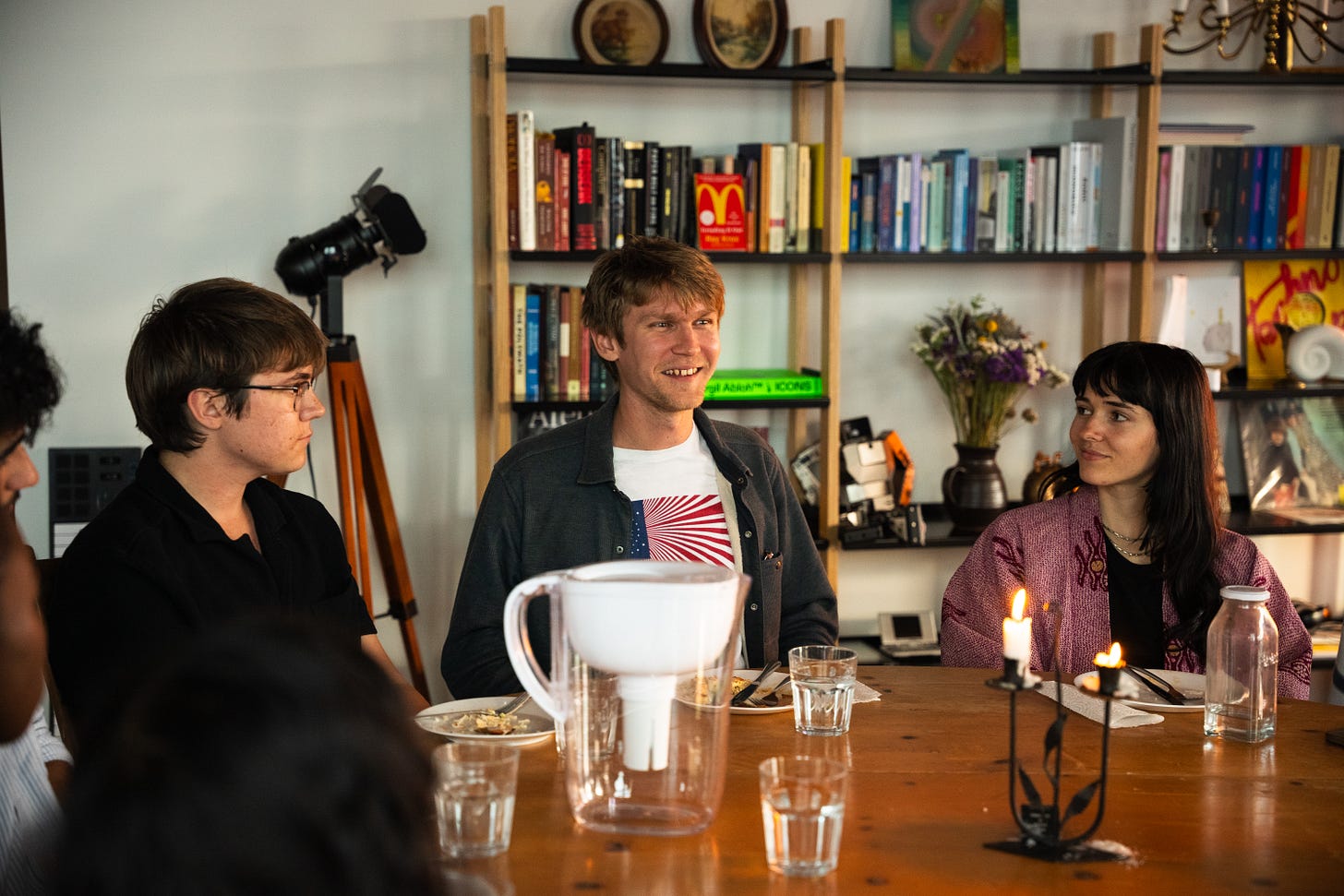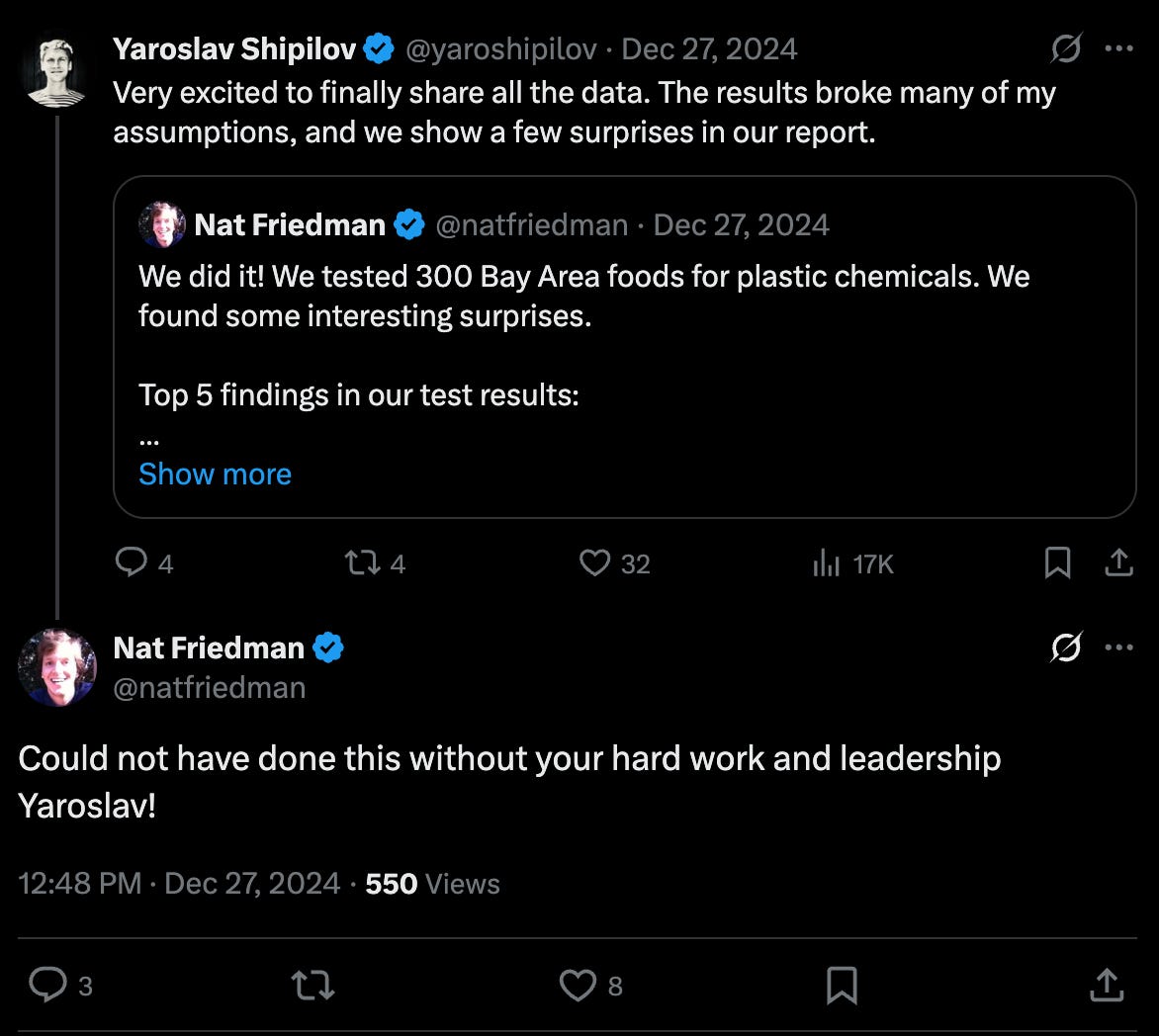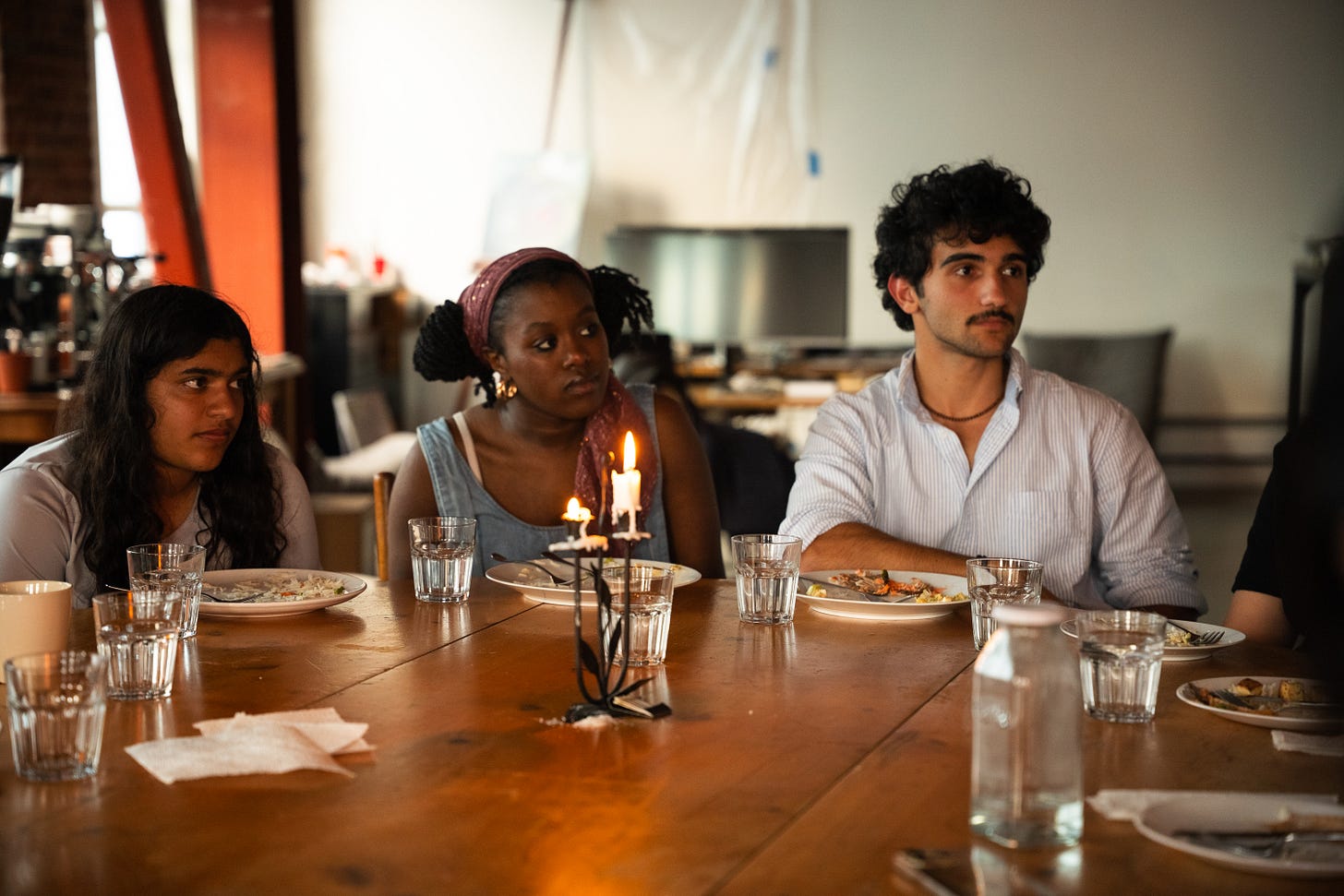Break Patterns
A dinner with Yaroslav Shipilov at Casa Nautilus
San Francisco,
July 23, 2025
Dear young polymath,
This is the sixth installment of a series where we share insights from guests at Casa Nautilus. Nautilus is a 3-month residency for young polymaths. Proteges’ stay in SF is fully funded with accommodation, food and equipment included, so they can dive into their craft and build ambitious projects.
This dinner was with Yaroslav, the founder of PlasticList. PlasticList is a consumer-led research project that focuses on testing food products for the presence of plastic-related chemicals, particularly those that leach from packaging. Their findings revealed that 86% of food samples tested in the Bay Area contained detectable levels of plastic chemicals.
I. “You can either keep accumulating patterns or break them.”
That’s what Yaroslav told us somewhere between sips of chamomile tea, and it struck me how that’s the best articulation of why some people end up making such distinctive choices apart from their environment.
Most people spend their lives accumulating patterns. School gives you patterns. Culture gives you patterns. You mimic your parents, your professors, your feeds’ patterns. And if you’re lucky, you get really good at those borrowed scripts the world gives you. But what if the real game isn’t in mimicking reality… but creating it?
Yaroslav was born and raised in Siberia. The first movie he remembers watching, iRobot, was at a theater in St. Petersburg. That film, with its AI-powered future and synthetic imagination, lodged itself in his child mind.
From there and beyond, he started breaking patterns. He learned English through Eminem lyrics.
He won the U.S. green card lottery—yes, the literal lottery. But don’t mistake his luck for being his recipe. Instead of taking out loans, he stacked grants and scholarships which covered his tuition to the University of Michigan.
II. “I felt home-less everywhere I went… but I learned to live at home within myself.”
Yaroslav left Siberia at age seventeen. That’s when the movement began. Michigan, New York, Discord servers, underground lab negotiations—he just kept moving. But internally, he was still searching.
He told us that he was homesick for five years. But what he taught us through that anecdote wasn’t how to return home. It was how to become the home we are looking for. He did that by creating a family with his wife in America.
That kind of sovereignty is hard-won. Especially when you don’t belong to any dominant place. Yaroslav didn’t feel he was fully home back in Siberia, nor in America. He felt foreign. And he felt that everywhere. Many of us in Nautilus relate to that sentiment as some people are third culture, some have complex relationships with their nations, and some are nomadic…
But Yarsolav taught us all how to synthesize from outsider to originator.
This feeling of being out of place is familiar to many polymaths. You might be feeling it too – it’s not a flaw. It’s fertile soil that pushes you to shape things that don't exist yet. And that’s what Yaroslav did with PlasticList.
III. “I didn’t even know chemistry. I used Claude.”
PlasticList was born out of following the zeitgeist. Microplastics were trending across newsfeeds, research journals, and comment sections. The public wanted answers. So after Yaroslav saw a tweet from Nat Friedman he decided to build something that tests plastic in everyday items—transparently and publicly.
But there was a problem.
He didn’t know chemistry. He wasn’t part of any institution. He didn’t have the credentials.
People told him: “You’re not the right kind of person to work on this.”
And still, he and his team kept trying. They called over 100 labs. Most told him to come back in two years. His project timeline was two weeks. Luckily, he ended up finding the right partners and got to work. Then, when it came time to understand the chemical data… He asked Claude what connections between datasets were.
AI has lowered the barrier to entry for solving problems from experts to anyone being able to make an impact in an area they want to. The same AI tools that trained Yaroslav in enough chemistry to test data for PlasticList are now training a new generation of polymaths to learn real, cross-applicable, technical insight.
PlasticList ended up taking 7 months instead of 2 weeks. They hit every wall imaginable. But they kept going.
Yaroslav told us, “I have faced obstacles where there was no path out. But that’s the nature of a real problem.” He didn’t change his posture—he just persisted. That’s what separates true builders from phonies.
Too many people cling to appearances. They flaunt their phonebooks, their ego feeds around mutuals, and confuse proximity to power with doing something powerful. Behind closed doors, though, there’s no action—because doing the hard, unglamorous things doesn’t preserve the image. But real problems don’t care about status. And real builders, like Yaroslav, don’t either. He and his team tested expired Korean War food. Publicly called out companies. They created a muscle for testing what others were too scared to touch. Eventually, it got Nat Friedman’s attention and a partnership blossomed:
“I wanted to work with Nat, but more than anything else, I was making PlasticList for the community and for myself. One person is never your only gateway.”
Don’t build for virality. Build because it matters. Don’t build for access. Ask people and build relationships with those who see you. And scale because you can’t not.
We’re saving you a seat at dinner. Apply to Nautilus’ next cohort.
Yours very truly,
MacKenzie Fisher






Awesome!